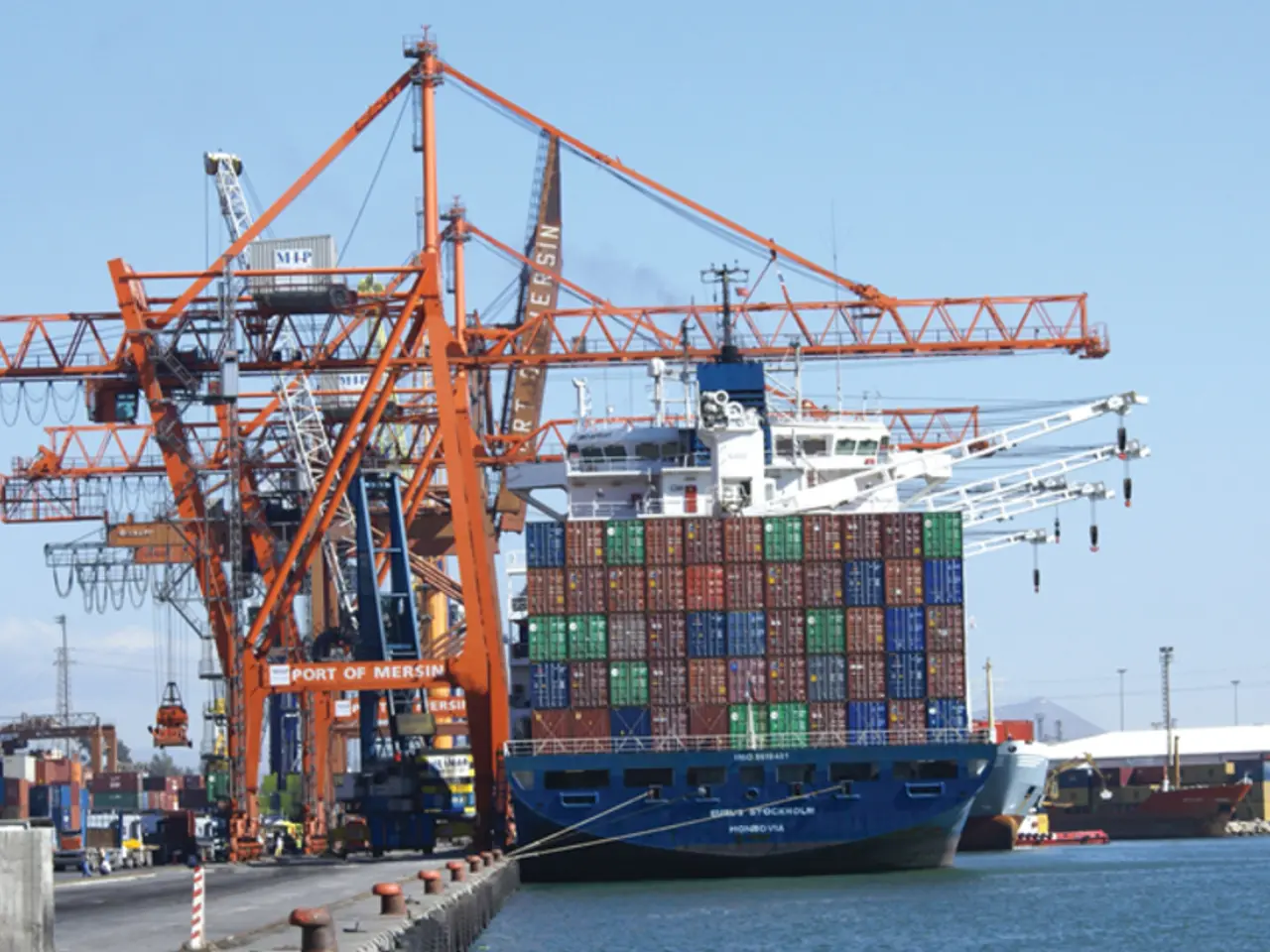Dubai Ports Company inks $800 million agreement for Syrian port development
Syria and UAE-based DP World have sealed a significant 30-year concession agreement worth $800 million for the development and operation of the Port of Tartus in Syria. This deal, aimed at modernizing Syria's port infrastructure and positioning Tartus as a strategic regional trade hub, connects Southern Europe, the Middle East, and North Africa[1][2].
The agreement, signed on July 13th, 2025, in Damascus, includes key details such as an investment scope that sees DP World investing $800 million over the concession period in upgrading the port’s infrastructure[2]. This includes the addition of new infrastructure, advanced cargo-handling equipment, and digital systems to enhance efficiency at both container and general cargo terminals.
The project is structured as a Build-Operate-Transfer (BOT) model, with DP World fully owning and operating the port during the concession[2]. The redevelopment seeks to reintegrate Syria economically after over a decade of conflict and infrastructure underinvestment, enabling Tartus to serve as a vital gateway for trade and exports of Syrian industries[1][2].
The agreement was signed in the presence of Syrian President Ahmed Al-Sharaa and representatives from both Syria’s General Authority for Land and Sea Ports and DP World. Sultan Ahmed bin Sulayem, DP World’s Chairman and CEO, declared the commitment to making Tartus "one of the best ports in the world" and emphasized trade as a driver for regional economic stability and growth[1][2].
This new agreement follows a prior memorandum of understanding signed in May 2025 and complements Syria’s recent economic moves, including a 30-year deal with CMA CGM to develop the port of Latakia and energy deals to revive the power sector[1].
The partnership is a strategic move by the Syrian government to attract international investment, aiming to improve the efficiency and capacity of several Syrian ports, streamline trade, and potentially increase competition among ports in the region[3]. The deal could lead to increased trade and commerce for Syria, boosting its economic position and supporting broader economic recovery[1].
The agreement also includes upgrades to logistical systems, integrated development projects, and a focus on job creation, potentially resulting in increased job opportunities in the Syrian port sector[1][2]. The deal was announced by the Syrian Arab News Agency (SANA)[1].
In summary, the $800 million deal with DP World represents a major strategic step to modernize Syria’s maritime infrastructure and bolster its position on the regional and international economic map through the enhancement of the Port of Tartus[1][2][4]. The partnership is a significant step towards Syria's broader economic recovery.
- The development of the Port of Tartus, facilitated by an investment of $800 million from science and industry leader DP World, is expected to modernize Syria's port infrastructure and solidify Tartus' status as a strategic trade hub connecting Southern Europe, the Middle East, and North Africa.
- The redevelopment of the Port of Tartus, executed under the Build-Operate-Transfer (BOT) model, aims to revitalize Syria's economy after a decade of conflict, unlocking trade and export opportunities for Syrian industries.
- The partnership between Syria and DP World, marked by a 30-year concession agreement, aligns with Syria's broader economic recovery strategy, which includes energy deals and port development ventures with international players such as CMA CGM in Latakia.
- The strategic investment by DP World encompasses the addition of new infrastructure, advanced cargo-handling equipment, digital systems, logistical upgrades, and integrated development projects, all designed to boost efficiency and job creation in the Syrian port sector.
- The signing of the concession agreement by Syria’s President Ahmed Al-Sharaa and DP World’s Chairman and CEO, Sultan Ahmed bin Sulayem, marks a significant shift in Syria's financial and economic landscape, potentially leading to increased commerce, growth, and job opportunities in the region.




